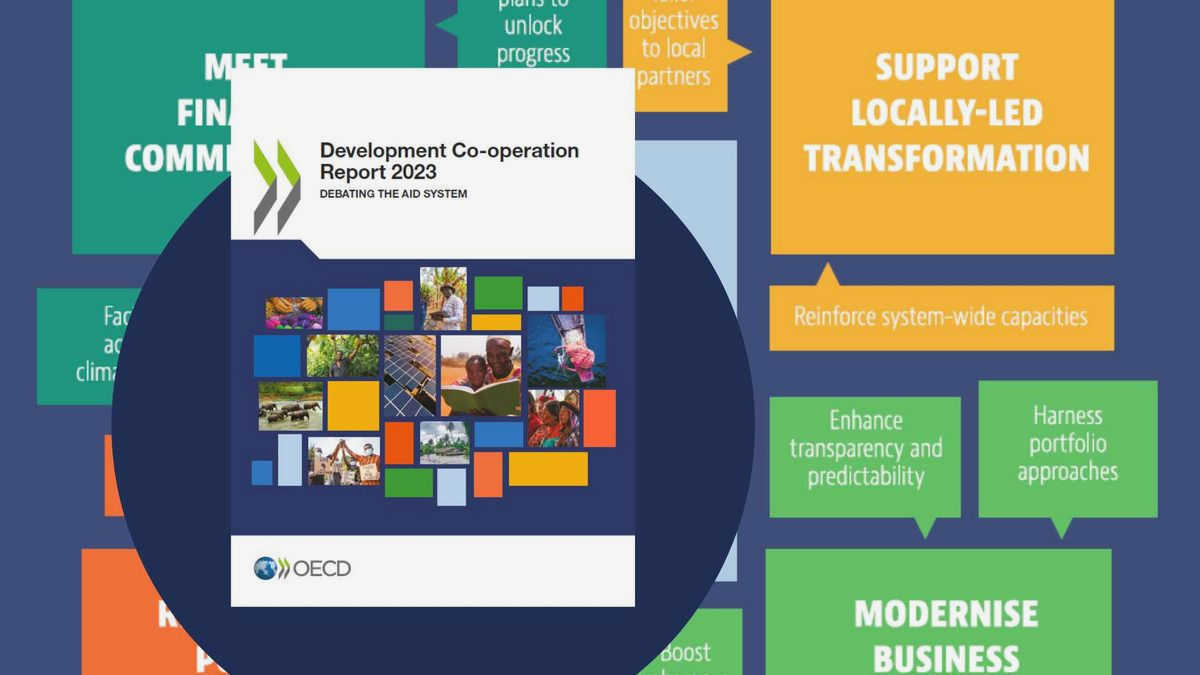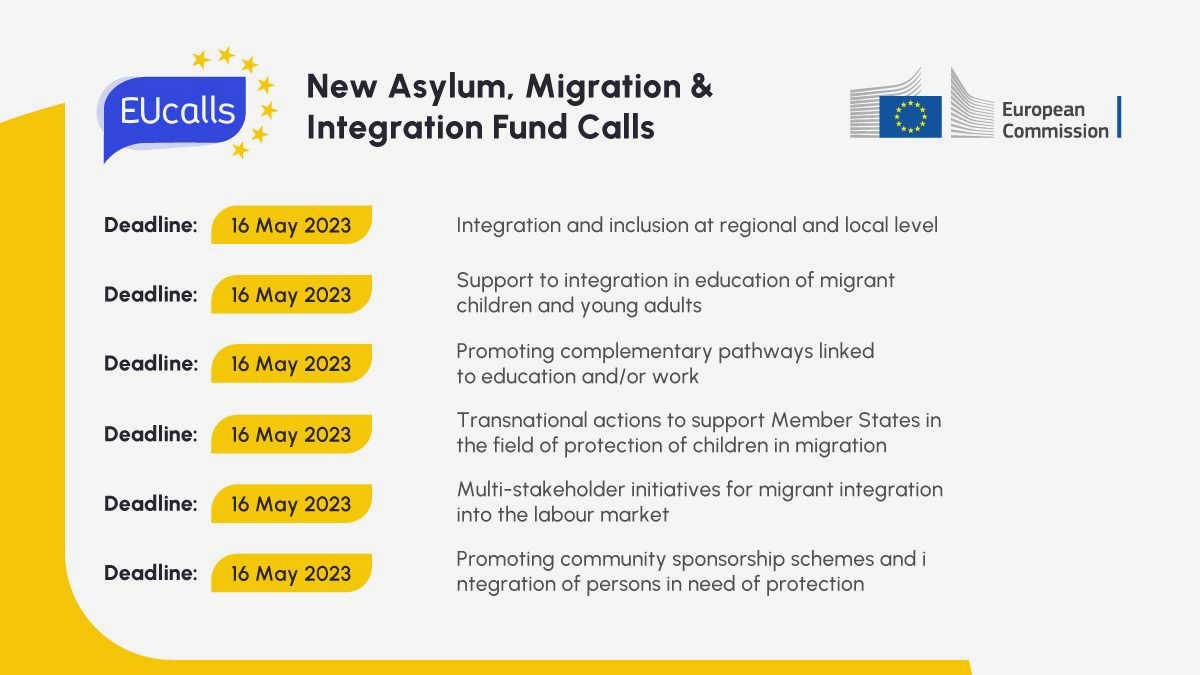As civil society organizations look to expand and enhance their impact, finding sustainable funding sources is a vital component of their success. One avenue worth exploring is corporate partnerships. By partnering with businesses, civil society organizations can tap into new funding opportunities, access resources and expertise, and build mutually beneficial relationships.
Corporate partnerships offer a range of benefits for civil society organizations. First and foremost, they provide access to funding that may not be available through traditional grant sources. Many businesses have established corporate social responsibility programs and are actively seeking ways to support organizations that align with their values and mission. By forging a partnership, civil society organizations can gain access to financial support to fuel their work and achieve their goals.
In addition to financial support, corporate partnerships can also provide valuable resources and expertise. Businesses often have access to a wide range of resources, such as technology, marketing and communications tools, and professional services. By partnering with a business, civil society organizations can leverage these resources to improve their operations, enhance their outreach efforts, and increase their impact.

Furthermore, corporate partnerships allow civil society organizations to tap into the business world’s expertise and knowledge. Businesses can offer guidance and support in areas such as strategy development, organizational management, and governance. This can help civil society organizations improve their effectiveness and sustainability, ensuring long-term success.
Overall, corporate partnerships present a promising avenue for civil society organizations to unlock funding opportunities and enhance their impact. By leveraging the financial support, resources, and expertise offered by businesses, civil society organizations can expand their reach, improve their effectiveness, and achieve their goals. Through collaborative partnerships, both businesses and civil society organizations can work together to create positive change in their communities and beyond.
The Importance of Corporate Partnerships
In today’s increasingly interconnected world, corporate partnerships have become vital for the success and sustainability of civil society organizations. These partnerships offer a multitude of benefits, both for the organizations themselves and for the corporate partners.
1. Access to Resources: One of the primary benefits of corporate partnerships is the access to resources that they provide. Corporations have extensive networks, financial resources, and expertise that can greatly enhance the capabilities of civil society organizations. Whether it’s funding, in-kind donations, or professional expertise, these partnerships can help CSOs expand their reach and impact.
2. Shared Expertise: Corporate partnerships enable CSOs to tap into the wealth of knowledge and expertise possessed by the corporate sector. Through collaboration, CSOs can gain valuable insights on various areas such as business strategy, marketing, and operations. This shared expertise can assist CSOs in building their capacity and implementing effective strategies for growth and impact.
3. Enhanced Credibility: Collaborating with reputable corporations can significantly enhance the credibility and reputation of civil society organizations. Corporate partnerships provide validation and demonstrate a commitment to social responsibility, which can in turn attract additional funding and support from other stakeholders. This increased credibility can help CSOs gain the trust of donors, governments, and the public.
4. Increased Visibility: Corporate partnerships offer CSOs the opportunity to gain greater visibility and exposure. By leveraging the marketing and communication channels of their corporate partners, CSOs can reach a wider audience and raise awareness about their cause. This increased visibility can not only attract more support but also help in advocacy efforts and in mobilizing public opinion.
5. Synergistic Collaboration: Corporate partnerships often foster synergistic collaborations, where the unique strengths of both parties can be combined to achieve shared goals. This collaboration can result in innovative solutions, increased efficiency, and a greater impact on the targeted beneficiaries. Through these partnerships, civil society organizations can tap into the resources and expertise of corporations to address complex social challenges more effectively.
In conclusion, corporate partnerships offer numerous advantages for civil society organizations, ranging from increased access to resources and shared expertise to enhanced credibility and visibility. These partnerships have the potential to create a win-win situation, benefiting both the organizations and their corporate partners, and ultimately contributing to positive social change.
Building Lasting Relationships
Building lasting relationships with corporate partners is essential for civil society organizations. These partnerships go beyond a simple financial exchange; they provide organizations with long-term support, resources, and expertise. By creating strong and meaningful relationships, civil society organizations can enhance their capacity to make a lasting impact and achieve their goals.
Understanding Mutual Benefits
In order to build lasting relationships with corporate partners, civil society organizations need to understand and communicate the mutual benefits of collaboration. By clearly articulating the value that the organization brings to the partnership, and the benefits that the corporate partner will receive in return, both parties can work towards a common goal and find shared value in the collaboration. This understanding forms the foundation for a strong and lasting partnership.
Open and Transparent Communication
Open and transparent communication plays a crucial role in building lasting relationships with corporate partners. This includes regular updates on the organization’s projects and impact, as well as sharing information about the corporate partner’s contributions and achievements. By fostering a culture of open communication, civil society organizations can build trust and strengthen the relationship with their corporate partners.

Collaborative Planning and Decision Making
Effective collaboration requires a shared vision and a collaborative approach to planning and decision making. Civil society organizations should actively involve their corporate partners in the strategic planning process, seeking their input and feedback. By including corporate partners in decision making, organizations can ensure that their goals align and that they are working towards a common vision.
Evaluation and Adaptation
Building lasting relationships with corporate partners is an ongoing process that requires continuous evaluation and adaptation. Civil society organizations should regularly assess the effectiveness of their partnerships and make adjustments as needed. By being open to feedback and continuously striving for improvement, organizations can strengthen their relationships and ensure long-term success.
In conclusion, building lasting relationships with corporate partners is crucial for civil society organizations. By understanding mutual benefits, practicing open and transparent communication, engaging in collaborative planning and decision making, and continuously evaluating and adapting, organizations can create strong and meaningful partnerships that support their mission and drive positive change.
Identifying the Right Partners
When it comes to unlocking funding opportunities through corporate partnerships, it is crucial for civil society organizations to identify the right partners. The right partner can provide not only financial resources, but also expertise, networks, and a shared vision for creating positive social impact.
To identify the right partners, civil society organizations should first assess their own mission, goals, and values. It is important to identify partners whose mission aligns with theirs, as well as partners who have a track record of supporting organizations in their sector.
One way to identify potential partners is through research and networking. Civil society organizations can attend industry events, conferences, and networking events to connect with corporate representatives. They can also conduct online research to identify companies that have a history of supporting social causes and organizations.
Another approach is to leverage existing relationships. Civil society organizations can reach out to their current donors, board members, and volunteers, and ask for introductions to corporate partners who may be interested in supporting their work. Personal connections can often be a valuable asset in identifying the right partners.
It is also important for civil society organizations to assess the potential benefits and risks of partnering with specific companies. They should consider factors such as the company’s reputation, values, and commitment to social responsibility. It is crucial to ensure that the partnership will be mutually beneficial and aligned with the organization’s goals and values.
By carefully identifying the right partners, civil society organizations can unlock funding opportunities and build long-term, impactful partnerships that drive positive change in their communities.

Creating Win-Win Situations
Collaboration: Creating successful corporate partnerships requires collaboration between civil society organizations (CSOs) and corporations. CSOs need to identify the specific needs and goals of potential corporate partners and align them with their own mission. By working together, CSOs and corporations can achieve mutually beneficial outcomes.
Shared values: A key factor in creating win-win situations is finding common ground between CSOs and corporations. It is important for both parties to share similar values and goals, as this will help to ensure a successful partnership. For example, if a CSO focuses on environmental conservation, partnering with a corporation that has a commitment to sustainability will create a synergy that can lead to meaningful impact.
Resource exchange: A win-win situation can be created when CSOs and corporations exchange resources. This can include financial support, expertise, networks, and access to new markets. By leveraging the resources and strengths of both parties, CSOs can expand their reach and impact, while corporations can enhance their corporate social responsibility efforts and build a positive brand image.
Shared accountability: To create a win-win situation, both CSOs and corporations must hold themselves accountable for the outcomes of their partnership. This includes setting clear goals, monitoring progress, and evaluating the impact of their joint efforts. By working together and holding each other accountable, CSOs and corporations can ensure that their partnership delivers tangible results and benefits for all stakeholders involved.
Long-term commitment: Building successful corporate partnerships takes time and requires a long-term commitment from both CSOs and corporations. It is important for both parties to invest in building strong relationships, fostering trust, and continuously working together to achieve shared goals. This long-term commitment will ultimately lead to sustainable and impactful partnerships that create win-win situations for all involved.
Collaboration for Social Impact
Collaboration plays a crucial role in driving social impact and addressing complex societal challenges. When civil society organizations (CSOs) partner with corporate entities, the potential for creating sustainable change and achieving collective goals increases significantly.
Shared Purpose: Collaboration between CSOs and corporations is driven by a shared purpose of creating positive social impact. By aligning their missions and values, organizations can combine their expertise, resources, and networks to address critical social issues effectively.
Complementary Skills and Resources: CSOs and corporate partners often bring different skills and resources to the table. While CSOs possess grassroots knowledge, community ties, and subject matter expertise, corporations offer financial resources, technical capabilities, and access to wider networks. By leveraging each other’s strengths, they can implement innovative solutions and maximize impact.
Capacity Building: Collaboration provides CSOs with opportunities for capacity building. Corporate partners can offer training, mentoring, and technical support to develop the skills and capabilities of CSO staff members. This enables CSOs to enhance their effectiveness, efficiency, and sustainability, ultimately leading to greater social impact.
Stakeholder Engagement: Collaborative efforts involving CSOs and corporate actors facilitate broader stakeholder engagement. By working together, they can involve diverse stakeholders such as governments, communities, and other non-profit organizations. This inclusive approach fosters a sense of shared ownership, encourages local participation, and ensures that multiple perspectives are considered in decision-making processes.
Measuring Impact: Collaboration for social impact requires robust monitoring and evaluation systems. CSOs and corporate partners can collectively develop indicators and metrics to measure the outcomes and impact of their joint initiatives. This enables them to continuously learn, adapt, and improve their interventions, leading to more effective and sustainable social change.

In conclusion, collaboration between CSOs and corporate partners is essential for driving social impact. By uniting their efforts, these organizations can harness their complementary skills, resources, and networks to tackle complex social challenges and create lasting change.
Innovative Funding Models
When it comes to funding civil society organizations, traditional models such as grants and sponsorships have been the go-to options. However, in the ever-changing landscape of funding opportunities, innovative models have emerged to provide alternative sources of financial support.
Crowdfunding
Crowdfunding has become a popular and effective way for civil society organizations to raise funds from a large number of people through online platforms. By creating compelling campaigns and leveraging social media, organizations can engage with individuals who are passionate about their cause and encourage them to donate. This model allows organizations to tap into a wide network of potential donors, increasing their chances of reaching their funding goals.
Social Impact Bonds
Social impact bonds, also known as pay-for-success models, are a relatively new funding approach that involves partnerships between civil society organizations, government agencies, and private investors. In this model, private investors provide upfront capital to fund social programs, and if the program achieves predetermined outcomes, the government repays the investors with a financial return. This innovative model allows civil society organizations to access upfront funding without the risk of repayment if the program does not achieve its intended impact.
Partnerships with Corporations
Another innovative funding model is partnerships with corporations. Civil society organizations can collaborate with corporations to develop programs, initiatives, or projects that align with both their missions and business objectives. In these partnerships, corporations provide funding, expertise, and resources, while civil society organizations bring their knowledge and networks. This collaborative approach allows organizations to access additional funding and leverage the corporate sector’s influence and resources.
Crowdinvesting
Crowdinvesting, similar to crowdfunding, allows civil society organizations to raise funds from a large number of individuals. However, unlike crowdfunding, crowdinvesting involves the offer of financial returns to the investors. Organizations can offer equity, revenue-sharing, or debt-based investments to attract investors who not only support the cause but also seek financial returns. This model provides organizations with a broader range of potential investors and encourages them to invest larger amounts to support the organization’s growth and sustainability.
In conclusion, innovative funding models offer civil society organizations new opportunities to secure financial support and diversify their funding sources. Whether through crowdfunding, social impact bonds, partnerships with corporations, or crowdinvesting, these models enable organizations to reach a wider audience, access upfront funding, and tap into different types of investors. Embracing these innovative funding models can help organizations unlock new avenues for sustainable growth and impact.
Maximizing Resources
Maximizing resources is crucial for civil society organizations (CSOs) to effectively carry out their missions and achieve their goals. With limited funding and resources, CSOs need to be strategic in how they allocate and utilize their available resources.
Partnerships
One of the most effective ways to maximize resources is through partnerships with other organizations. Collaborating with corporate entities can provide CSOs with access to additional funding, expertise, and resources that can help them expand their reach and impact. By pooling resources and leveraging each other’s strengths, CSOs and corporate partners can achieve more together than they could on their own.
Efficient Planning and Management
Efficient planning and management are also essential for maximizing resources. CSOs should carefully analyze their needs and prioritize their activities to ensure that resources are allocated to the most impactful projects. Additionally, effective project management can help streamline operations, reduce waste, and optimize resource utilization.
Technology and Innovation
Embracing technology and innovation can greatly enhance resource maximization for CSOs. By leveraging digital tools, CSOs can automate processes, reduce administrative burdens, and improve productivity. Additionally, innovative approaches such as crowdfunding platforms and social media campaigns can help CSOs raise funds and engage a wider audience, maximizing their impact and reach.
In conclusion, maximizing resources is crucial for CSOs to effectively carry out their missions. Through partnerships, efficient planning and management, and embracing technology and innovation, CSOs can optimize their resources and achieve greater impact in their respective fields.
Measuring and Communicating Impact
Measuring and communicating impact is crucial for civil society organizations (CSOs) in order to demonstrate the effectiveness of their work and attract funding from corporate partners. It involves systematically collecting and analyzing data to assess the outcomes and long-term effects of CSOs’ projects and initiatives.
Measuring impact: CSOs can use various methods to measure the impact of their work. This can include quantitative measures, such as surveys or data analysis, to quantify the number of people reached or the changes observed. Qualitative methods, such as interviews or focus groups, can provide deeper insight into the transformational effects of the CSO’s activities. It is important for CSOs to select appropriate indicators and measurement tools to demonstrate the outcomes and effectiveness of their work.
Communicating impact: Once the impact has been measured, CSOs need to effectively communicate it to potential corporate partners. This can be done through comprehensive impact reports that highlight the positive outcomes and the value created by the CSO’s work. Visual representations, such as infographics or charts, can help make the impact more tangible and memorable. Case studies and success stories can also be powerful tools to convey the real-life impact of the CSO’s initiatives. Sharing impact through various channels, such as social media, press releases, or events, can help reach a wider audience and attract corporate partners.
Furthermore, CSOs can collaborate with corporate partners to develop shared indicators and evaluation frameworks. This allows both parties to align their goals and measure the joint impact of their partnership. Regular monitoring and reporting can showcase the progress and accountability of the partnership to both internal and external stakeholders.
In summary, measuring and communicating impact are essential for CSOs to demonstrate the effectiveness of their work and secure funding from corporate partners. By implementing rigorous measurement methods and effectively communicating the positive outcomes, CSOs can attract more attention and support from potential partners, ultimately leading to greater societal impact.
Scaling Up for Greater Impact
Scaling up is a crucial step for Civil Society Organizations (CSOs) to achieve greater impact in their work. By scaling up, CSOs can reach a larger audience, address deeper-rooted issues, and achieve sustainable change. Here are some key factors to consider when scaling up for greater impact:
1. Strategic Partnerships
Strategic partnerships with corporate entities can provide the necessary resources, expertise, and networks to scale up effectively. CSOs can collaborate with corporations that share their mission and values, leveraging their resources and expertise to expand their reach and maximize their impact.
2. Technology and Innovation
Embracing technology and innovation can significantly enhance the scalability of CSOs. By adopting digital tools and platforms, CSOs can automate processes, streamline operations, and reach a larger audience. Moreover, innovative approaches, such as using data analytics and artificial intelligence, can help CSOs gain insights and make informed decisions for scaling up their programs.
3. Capacity Building
To scale up successfully, CSOs need to invest in building their internal capacity. This includes developing their leadership, strengthening their governance structures, and enhancing the skills of their staff and volunteers. By investing in capacity building, CSOs can ensure they have the necessary resources and expertise to manage expanded programs and partnerships effectively.
4. Knowledge Sharing and Learning
CSOs can learn from each other and share best practices to scale up their impact. Creating platforms for knowledge sharing, such as conferences, workshops, and online forums, can facilitate the exchange of ideas and experiences. CSOs can learn from successful scaling-up initiatives and adapt strategies that have worked in other contexts.
In conclusion, scaling up is a critical process for CSOs to amplify their impact and create sustainable change. By engaging in strategic partnerships, embracing technology and innovation, investing in capacity building, and fostering knowledge sharing, CSOs can unlock funding opportunities and scale up for greater impact.
The Future of Corporate Partnerships
The landscape of corporate partnerships is constantly evolving, driven by changes in technology, globalization, and societal expectations. As we look to the future, it is clear that corporate partnerships will play a crucial role in addressing the complex challenges that civil society organizations (CSOs) face.
Collaboration and Co-Creation
One of the key trends we can expect to see in the future is an increased emphasis on collaboration and co-creation between CSOs and corporate partners. Rather than simply providing funding, companies are recognizing the value of engaging in meaningful partnerships that leverage the unique strengths and resources of both parties. This shift towards collaboration not only enhances the impact of CSR initiatives, but also fosters innovation and creates shared value.
Data-Driven Decision Making
In the future, data-driven decision making will become increasingly important in corporate partnerships. With the proliferation of digital technologies and the availability of large amounts of data, companies and CSOs will have access to valuable insights that can inform their strategies and drive more impactful outcomes. Utilizing data analytics to assess the effectiveness of partnerships, measure outcomes, and identify areas for improvement will be essential for both parties to ensure the success and sustainability of their collaborations.
Greater Focus on ESG
Environmental, Social, and Governance (ESG) considerations will take center stage in future corporate partnerships. As businesses face increasing pressure to demonstrate their commitment to sustainability and responsible business practices, CSOs will play a critical role in helping companies navigate these challenges. By partnering with CSOs that align with their ESG goals, companies will be able to enhance their social and environmental impact, strengthen their reputation, and mitigate risk.
Empowering Small and Medium-Sized CSOs
In the future, there will be a greater focus on empowering small and medium-sized CSOs to engage in corporate partnerships. Recognizing the important role that these organizations play in addressing local needs and driving social change, companies will seek to establish more inclusive and accessible partnership models. This may involve providing capacity building support, offering tailored funding opportunities, or facilitating knowledge sharing and collaboration among CSOs.
In conclusion, the future of corporate partnerships holds great potential for driving positive change. By embracing collaboration, data-driven decision making, ESG considerations, and inclusive practices, CSOs and corporate partners can forge impactful and sustainable partnerships that address the complex challenges of our world.





